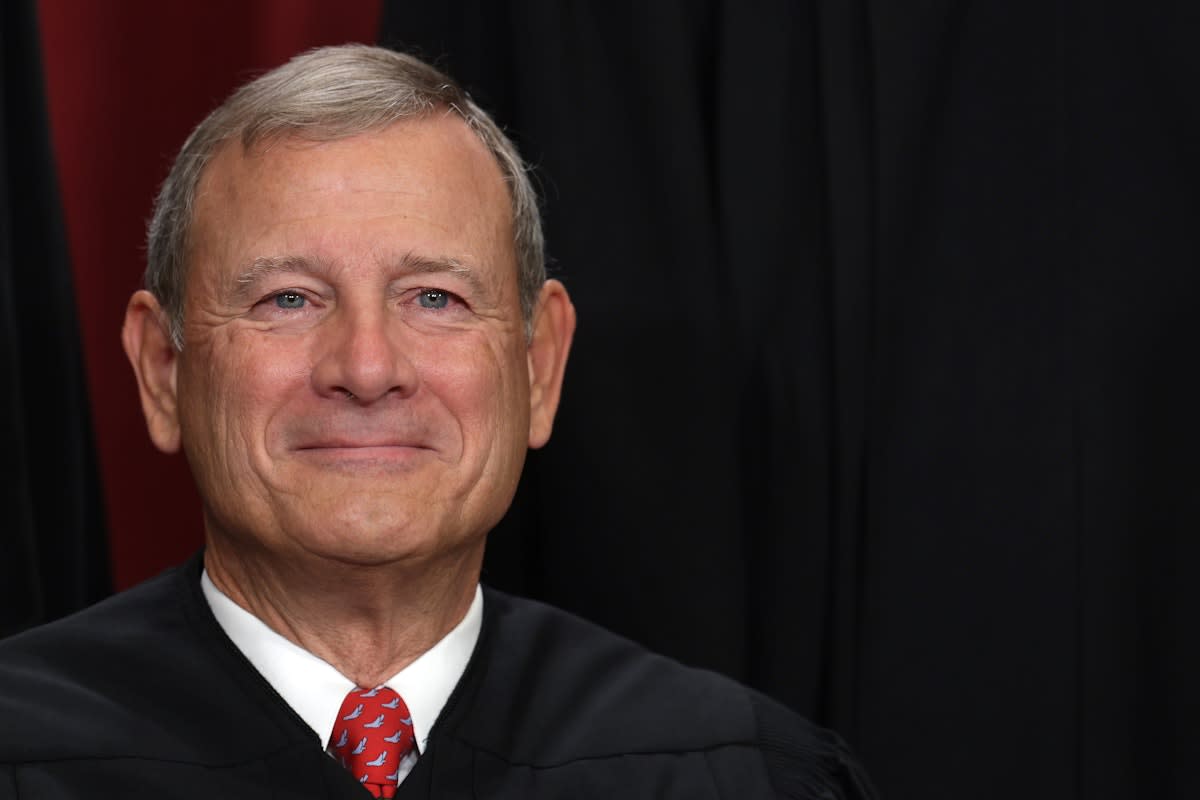Alarming Report Exposes Details of Chief Justice’s Pro-Trump Ruling

- Oops!Something went wrong.Please try again later.
- Oops!Something went wrong.Please try again later.
It looks like Supreme Court Chief Justice John Roberts had his mind made up on presidential immunity from the start, and made no effort to negotiate with the court’s liberal justices.
According to a stunning new report from CNN citing unnamed sources, Roberts looked past any chance of coming to a compromise outside of the conservative majority on the court, as was typical in past cases on presidential power. He instead thought that he could persuade the court’s liberals to look beyond Donald Trump.
The oral arguments for the case on April 25 didn’t indicate such a clear-cut breakdown, as justices seemed ready to vindicate Trump in only some of his legal team’s arguments, while also accepting some of special counsel Jack Smith’s points.
But the justices’ private session the next day did not reflect any of that, with votes quickly breaking down on ideological lines and Roberts ready to rule that presidents have near-absolute immunity for all “official acts.” He tried to steer the conversation away from Trump, writing in his opinion that “unlike the political branches and the public at large, we cannot afford to fixate exclusively, or even primarily, on present exigencies.”
Roberts’s actions flew in the face of his previous rulings, such as the court’s 2022 decision Jackson v. Women’s Health Organization. While Roberts sided with the conservative majority in that case in ruling against the organization, he dissented on overturning the abortion rights enshrined in Roe v. Wade. And a decade earlier, he cast the deciding vote that upheld the Affordable Care Act, breaking with his fellow conservatives in a 5–4 decision.
But this time, Roberts did not seem amenable to compromise, and in fact one of Trump’s appointees, Justice Amy Coney Barrett, was the lone conservative on the court who sought any kind of compromise with the liberal justices. In her opinion on the immunity case, she said the Trump plan to use alternative slates of electors should be considered a “private” and not an official act, and thus subject to criminal prosecution.
Ultimately, the Supreme Court’s decision on immunity, led by Roberts, has upended precedent and put all of Trump’s legal cases in jeopardy. The one criminal case that was decided prior to the court’s ruling has had sentencing delayed. Of the two federal cases that are still being decided, one was dismissed pending appeal by a judge seemingly on Trump’s side, and the other is in limbo. In short, Roberts may have presented himself as moderate before, but his decision on immunity shows that his conservative beliefs come first.

